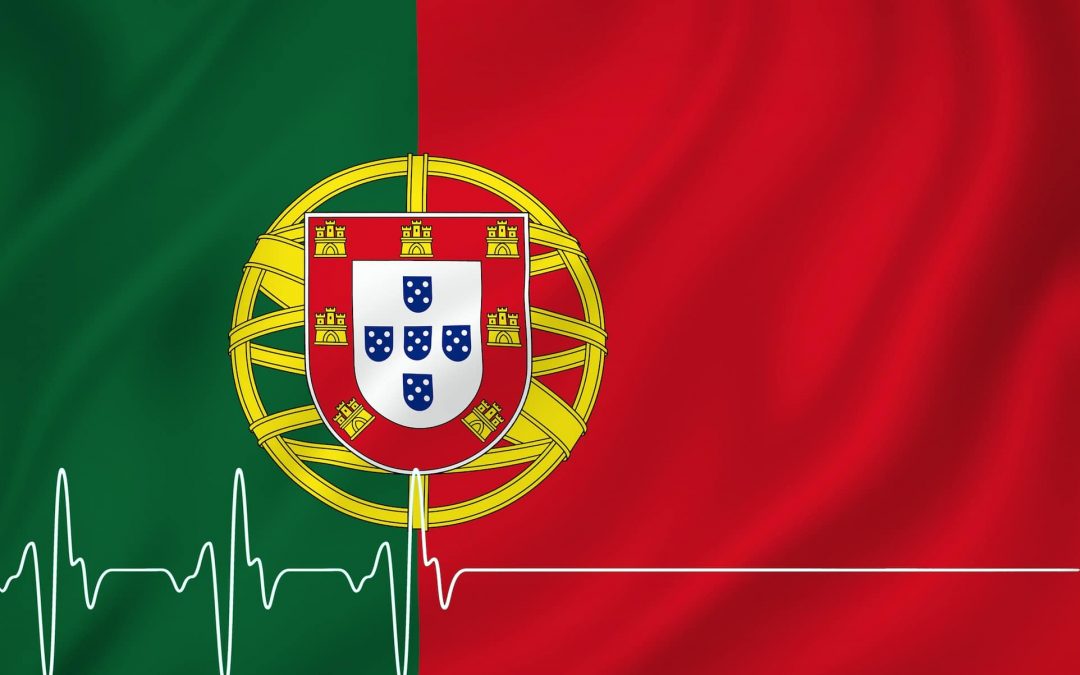
by Alliance VITA | February 19, 2021 | News, Old age and Dependency
5 Questions for Project Coordinator Tugdual Derville
Where did the idea for this campaign originate?
From the 2003 heatwave! That summer, when we saw the dramatic mortality rates for the elderly, Alliance VITA carried out an in-depth survey by interviewing several hundreds of individuals. We realized that small, almost innocuous acts, could fulfil a person’s profound needs: that of feeling connected to those they care for, through a short visit, a phone call or even…a personal letter.
At that time the pressure for euthanasia was omnipresent, as it is now, and we had already realized that we need to fight against “dying socially”, the fundamental reason for losing heart. This survey was the starting point for launching our SOS end-of-life service.
For the past year, the elderly, in nursing homes (“EHPADs”) but also at home, have been braving yet another tragedy. The pandemic prompted us to carry out another survey and to launch this new campaign which resonates along the lines of the first one.
What have you learned from this new survey?
Due to the sanitary restrictions imposed on us, the lengthy interviews carried out by our volunteers at the end of 2020 with 530 individuals over age 80 may not be a statistically representative sample. Nonetheless, generally speaking, those who normally lead an active social life, atest that their relationships with loved ones are a determining factor for their happiness. They need to keep in contact, by exchanging news, but also by regular updates on current events, in order to feel included in the lives of their loved ones.
One of the most astonishing discoveries was an “intergenerational segregation”, where over half of those responding said that they see children only rarely (27%) or not at all (27%); although they are almost unanimous in saying how important it is for them to have children around them! Some seniors have even told us that they will regularly go to a public garden and sit on a bench simply to “see children” without ever daring to interrelate with those who mind the youngsters. This is heartbreaking!
Why the Slogan “Always Together”?
The slogan has its origin in a cruel observation: in an increasingly fragmented and individualistic society, we live completely separate lives. Rarely do several generations live under the same roof. The pandemic may have brought us closer to some people, but countless others are still isolated because visits are prohibited. We hope to disprove two proverbs: “Out of sight, out of mind” and “No news is good news”. We refute them and claim: “Always together!” and “Some news is good news! »
This pandemic provides an opportunity for each of us to become more aware of what the elderly are experiencing and to make a greater effort. By the simple gesture of sending a postcard with a personal photograph one can say: “You are precious to me and I care for you!”
What results do you expect from this campaign?
First of all, to comfort as many people as possible. To share our personal news with someone is to share part of our life with them. Nowadays we mostly receive administrative letters, so it’s hard to realize how good it feels to receive personal letters. It is a rare and valuable thing that may be treasured indefinitely.
Afterwards, we hope that the first little act of sending a card, will encourage everyone to join the virtuous circle of solidarity with the most vulnerable…
To bring our hearts out of “lockdown”, Alliance VITA wants to foster a cultural environment that celebrates life, starting by focusing on those who are the most vulnerable. If love is not demonstrated in a visible way, then what is the meaning of love?
Initiating positive actions is as important as opposing actions against life.
How is the campaign organized?
You will find out on our website: www.toujoursensemble.fr! Follow simple instructions, and receive a personal code that allows you to create one (and only one) online card to send to an elderly person of your choice, among your loved ones. There is a small fee for the envelope, postage, and routing.
It is thrilling for us to achieve the transformation from digital to “real life”. For once, the screen is “converted” into paper. We will be following this campaign on a daily basis, on social networks, with images, mini-videos, testimonials… If all goes well, millions of people should hear about it. And hopefully thousands will reap the benefits.
By launching this campaign in mid-February, for a month, we are showing that we are determined to do more than send out good (and pious) wishes for the new year! If these lines have persuaded you, I encourage you to take part in this campaign right now, and to spread the word.

by Alliance VITA | February 19, 2021 | Euthanasia and Suicide, News
On 18 February 2021, Portugal’s President Marcelo Rebelo de Sousa asked the country’s Constitutional Court to evaluate the recently passed euthanasia law which appears to be violating the fundamental principles of the country’s constitution.
Among the grievances stated in the appeal are “excessively imprecise concepts ” such as “unbearable suffering”, with no evaluation of “irreversible injuries” except for the criteria of being permanent, without any reference to whether or not the condition is fatal.
The Constitutional Court must pronounce its’ decision on the draft law within 25 days.
The Portuguese MPs hurriedly voted this highly controversial legislation on January 29th while the entire medical profession and civilians were completely overwhelmed with the coronavirus pandemic raging across the country again. The bill has triggered a strong outcry by the general public.
Depending on the Court’s decision, the legislation could be sent back to Parliament to be re-examined. The final approved draft could be vetoed by the President, although a majority vote in Parliament could then override his veto.
![[Press Release] President Macron Must Face Reality: Bioethics Bill is Obviously in a Dead End](https://www.alliancevita.org/wp-content/uploads/2019/06/bioethique-1-1-1080x675.jpg)
by Alliance VITA | February 17, 2021 | Bioethics Law, Bioethics, Press Releases
The joint committee appointed by the French Parliament to write a new text for the bioethics bill, that would be acceptable by both the National Assembly and the Senate has, as expected, failed, due to their irreconcilable differences.
Alliance VITA is calling on French President Macron to honor his commitment to hold peaceful bioethical discussions, rather than persisting on passing a controversial bill that raises deep public dissention and worry in the midst of a healthcare crisis.
After two successive readings in each house, the gap has continued to widen, as the significant consequences of the proposed law have been brought to light:
- Extending ART without any medical reason would seriously undermine the rights of the child.
- Manipulating life by creating human/animal chimeras and genetically modified embryos are unprecedented ecological risks that could jeopardize the integrity of the entire human species.
Alliance VITA believes that giving the National Assembly the monopoly on the decision, in heedless disregard to the Senate’s opinion, is equivalent to bulldozing through legislation by brute force. Consequently, our association is hereby requesting that President Macron postpone the debate on this law, otherwise we will resume our efforts to alert and get the public involved against this bioethics bill which has become more useless and dangerous than ever.

by Alliance VITA | February 17, 2021 | News, Abortion
The Socialist Group has given up the idea of holding an open public debate on the latest bill to extend abortion rights. They claim that the very large number of amendments proposed for this bill would have prevented them from examining the bill, which goes with another four bills, within their party’s allotted timeframe.
Tabled by Mrs. Albane Gaillot, (MP,Val de Marne), and scheduled under the “Ecologie Démocratie Solidarité” party’s agenda, the law proposition was examined and adopted at first reading in the National Assembly last October.
Since then, the political group composed of a few liberal activists from President Macron’s party “LREM” (“La République en Marche”) split up, due to an insufficient number of MP’s. Under pressure from Senator Laurence Rossignol, the Socialist group agreed to take on the bill after the Senate’s reading last January, in order to move forward on this bill. Since the bill was rejected by the Social Affairs Committee, the Senate decided to cancel the public debate, judging it irrelevant after the “LR” (Les Républicains) group tabled a preliminary question.
A Highly Criticized Bill
Improbably claiming that it is becoming increasingly difficult to have an abortion nowadays, the bill proposes to extend the legal deadline for abortion from 12 to 14 weeks, in addition to abolishing the legal conscience clause for health professionals.
As the bill transited through the national assembly, the first reading, the Social Affairs Committee, and the second reading on February 10th, new clauses were added aiming at further facilitating abortion:
- Eliminating the 48-hour reflection period of cooling-off for minors;
- Allowing midwives to practice surgical abortions up to 10 weeks of pregnancy;
- Extending the deadline for medically induced abortions at home from 5 to 7 weeks of pregnancy;
- Subjecting pharmacists to explicit obligation to deliver “the morning-after pill”;
- Delivering to the Parliament a government’s report on the implementation of the legislation to penalize the crime of obstruction to an abortion.
In view of the fact that statistics show there are more abortions performed in France than ever before, this blatant attempt pushing toward unlimited abortion is highly criticized, both politically and socially.
The College of Physicians is opposed to draft bill and asserted that “neither abolishing the conscience clause nor lengthening legal deadlines […] can be a solution to the difficulties our fellow citizens might experience today if they decide to have an abortion.”
Although the “CCNE” (National Consultative Ethics Committee) issued controversial recommendations about extending abortion deadlines, it did concede that abortion is not “an ordinary medical procedure” and that it is justified to continue having a specific conscience clause for health professionals.
Bulldozing forward on such a sensitive subject where human lives are at stake seems to indicate that ideological maneuvering is at play. The bill lacks any notion of preventive or solidarity measures, although women with the lowest stand of living are much more likely to have abortions. Instead of being jostled left and right by ideological disputes, the government needs to stop making access to abortion easier. Instead, an in-depth study on the causes and consequences of abortion must be conducted in order to implement a genuinely forthright policy to prevent abortions.

by Alliance VITA | February 12, 2021 | News, Family
On Tuesday February 9, 2021, the French government launched its’ platform to help parents protect minors over the age of six from exposure to pornography..
The new website “jeprotegemonenfant.gouv.fr », (I protect my child) was disclosed on the international “Safer Internet Day”
According to a survey published in 2018, “nearly one third of minors have been exposed to pornography prior to age 12, 60% of them prior to age 15, and 82% prior to age18. Undeniably, this early exposure has consequences: over 50% of minors acknowledged having been shocked the first time they saw such images. Besides, 44% of teenagers concede they have tried to reproduce practices seen in X-rated films, and almost 25% admit a feeling of inferiority because of porn.”
This platform aims to help parents supervise their children by explaining how to install parental control of pornographic programs for example, and to help improve dialogue by suggesting how to discuss these topics.
Previously, in 2017, an Ifop study commissioned by “OPEN” (Observatory of Parenting and Digital Education) had alerted the government of the impact pornography was having on minors.
Today, a minor can easily override parental control of pornographic sites with a simple click. This past November, three associations petitioned the High Audiovisual Council (“Conseil Supérieur de l’Audiovisuel” or CSA”) to investigate three versions of the largest pornography site. Under current law the “CSA” has the authority to block these sites, and a decision is expected within a month.
Although this platform has the merit of raising public awareness about the dangers and harmful consequences of porn on young people, a more comprehensive policy is necessary to study how pornography can lead to addictions and incite violent behavior in adults.



![[Press Release] President Macron Must Face Reality: Bioethics Bill is Obviously in a Dead End](https://www.alliancevita.org/wp-content/uploads/2019/06/bioethique-1-1-1080x675.jpg)

